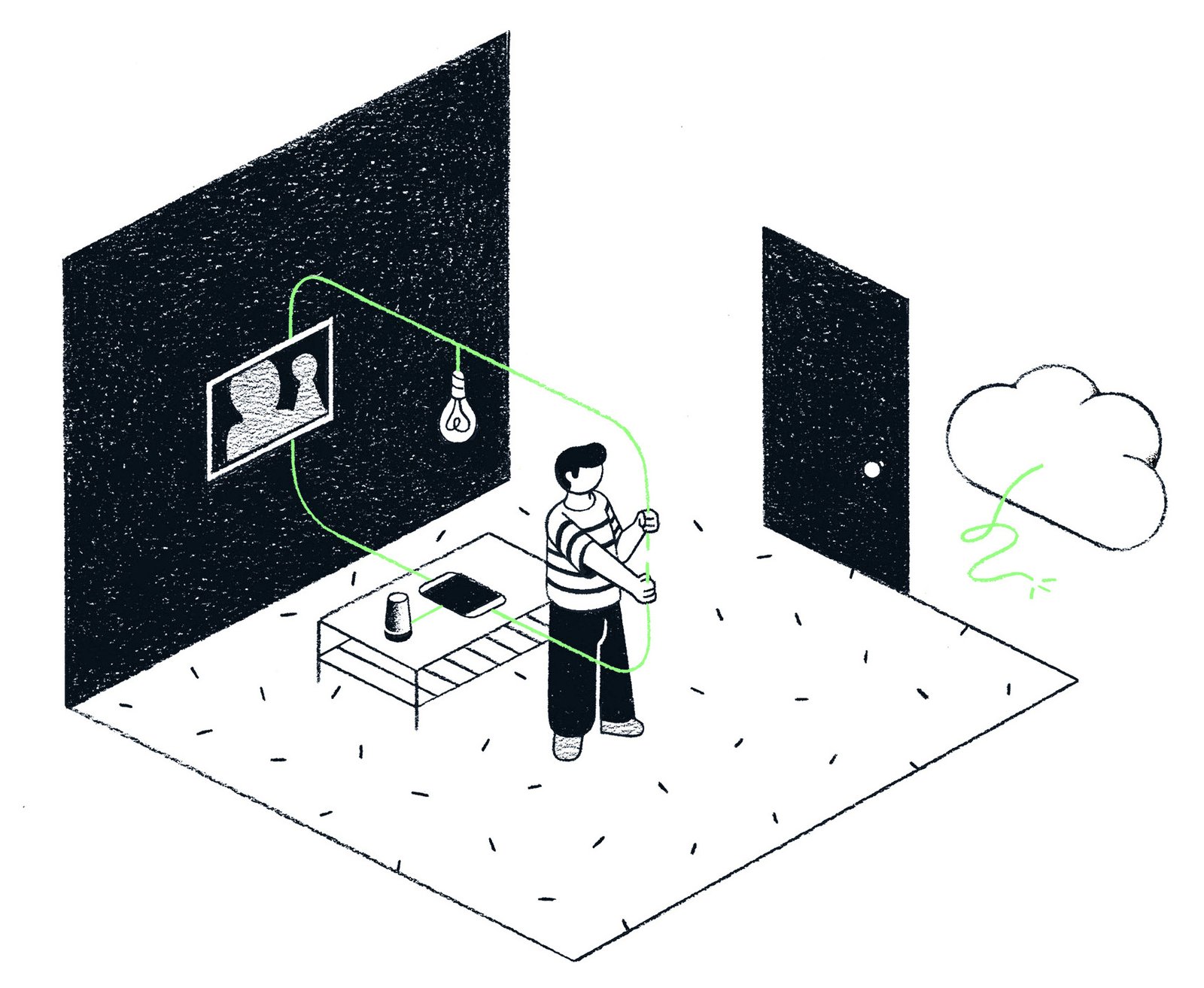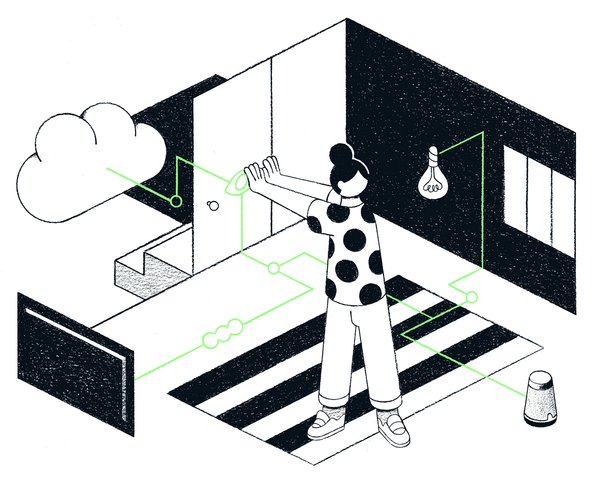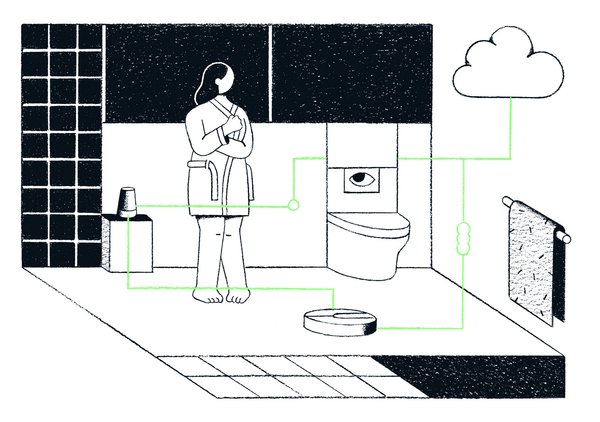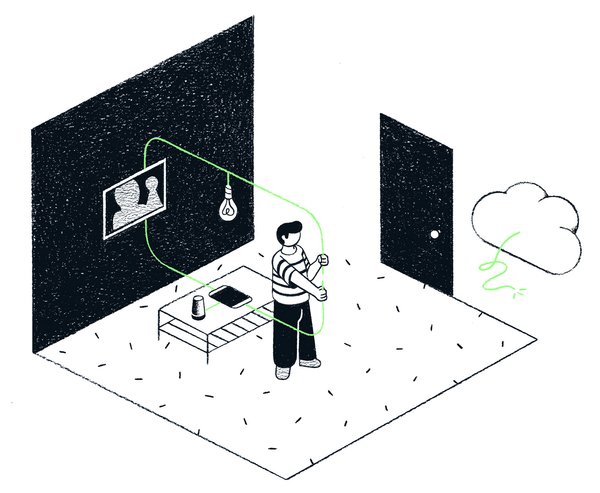With the rapid evolution of the smart home, has privacy become just another setting?

The connected home is inevitable. Like the plumbing, electricity, and refrigeration that came before it, the smart-home system will soon be an integral part of our domestic lives. Today, more than a third of Americans with high-speed Internet own smart-home devices, the most popular be- ing smart speakers and connected security cameras. According to research firm Berg Insight, almost half of all households in America will somehow qualify as “smart” in just three years.
The lifeblood of the smart home is data: sensors sending information to linked devices, artificial intelligence learning our habits to improve service, infrastructure and appliances talking directly to each other. But with all that tech keeping track of how we live and what we do, skepticism and fear about smart devices are as widespread as the gadgets themselves.

Illustration by Playmetric
Is somebody eavesdropping on our most intimate conversations through that smart speaker? Could an intruder get into our house by hacking a connected door? Might a smart oven one day go rogue and burn down the house? Yes and no.
“I’m not as concerned about the risk of someone hacking a smart home in a way that’s destructive,” says host of Internet of Things podcast Stacey Higginbotham. “I would rank that at the bottom. Above that is malware targeting popular devices, and above that is the collection and storage of data for later parsing. Basically, people can do anything with that data. There are no protections.”
Recent revelations that humans have been listening to what we say to Google’s Nest, Amazon’s Echo, and Apple’s Home-Pod present a case for reining in the power of these products. “The only way to create a smart home that doesn’t compromise your privacy is to have strong regulations in place to make sure people can’t use that data maliciously or without being completely transparent about their intentions,” says Higginbotham.

“You should feel comfortable putting your home on the Internet once we have a regulatory framework in place. Before then, it feels kind of like a crap shoot,” says technology journalist Stacey Higginbotham.
Illustration by Playmetric
A natural response would be to demand that our elected officials draft policies to protect us from such invasive violations, but some see government involvement as potentially an even bigger problem. Higginbotham cites the growing controversy over smart-security company Ring’s partnerships with more than 400 police departments.
These alliances can provide officers with access to homeowners’ video footage from their doorbell cameras, with their permission. “Targeting neighbor- hoods and sending the camera feeds that have been collected to ICE, that’s totally something that could be done today. And that’s very scary,” she says. More than 30 civil rights groups have written an open letter to state and local governments to end these partnerships.
But these devices are not spying on you in the traditional sense, argues Jeff Jarvis, professor and author of the book Public Parts: How Sharing in the Digital Age Improves the Way We Work and Live. In most cases, he says, “humans listening to voice commands are simply checking samples to see how good the technologies are.” It’s a case of extrapolating the dangers of what a technology can do before any harm has actually happened, he says. “If we focus on everything bad that could happen, we’ll rule out a lot of good.”

Illustration by Playmetric
See the full story on Dwell.com: Smart Talk: What Does Opting Into Home Automation Mean for Privacy?





